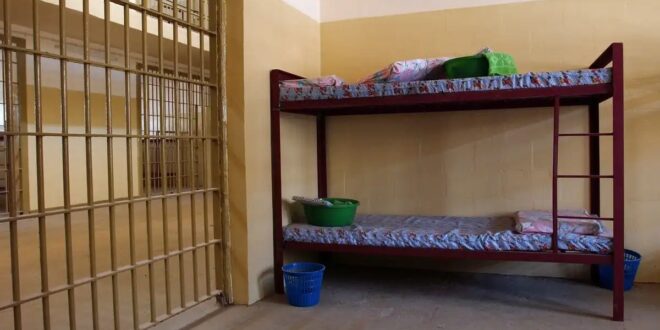The US has failed to provide compensation or other redress to Iraqis who suffered torture and abuse two decades after evidence emerged of American forces mistreating detainees at Abu Ghraib and other US-run prisons in Iraq, Human Rights Watch (HRW) said earlier this week.
“Twenty years on, Iraqis who were tortured by US personnel still have no clear path for filing a claim or receiving any kind of redress or recognition from the US government,” said Sarah Yager, Washington director at HRW. “US officials have indicated that they prefer to leave torture in the past, but the long-term effects of torture are still a daily reality for many Iraqis and their families.”
In 2004, then-US President George W. Bush apologised for the “humiliation suffered by the Iraqi prisoners” at Abu Ghraib. Soon after, Defence Secretary Donald Rumsfeld told Congress that he had found a legal way to compensate Iraqi detainees who suffered “grievous and brutal abuse and cruelty at the hands of a few members of the United States armed forces. It’s the right thing to do, and it is my intention to see that we do.”
Despite the pledge, Human Rights Watch said that it had found no evidence that the US government has paid any compensation or other redress to victims of detainee abuse in Iraq, nor has it issued any individual apologies or other amends.
Some victims have tried to seek compensation through the US Foreign Claims Act (FCA). This law enables foreign individuals to receive compensation for death, injury, or property damage resulting from actions by US service members that are not related to combat, negligence, or wrongful acts. However, there’s a provision known as the combat exclusion, which means that claims cannot be paid if the harm arises from actions by either enemy forces or US forces involved in armed conflict or preparing for it.
Iraqi victims who have given testimony to HRW about the abuse and torture they suffered from US forces also discovered that filing a claim under the Foreign Claims Act is not an option because claims must be filed within two years from the date of the alleged harm.
It’s reported that an estimated 70 to 90 per cent of people held under US custody in Iraq in 2003 had been arrested by mistake.The cases of Iraqis that attempted to find justice in US courts have been repeatedly dismissed using a 1946 law that preserves US forces’ immunity for “any claim arising out of the combatant activities of the military or naval forces, or the Coast Guard, during time of war.”
A US Department of Defence document examined by HRW reveals that the US Army Criminal Investigation Division (CID) initiated a minimum of 506 inquiries into reported mistreatment of individuals by US and coalition forces in Iraq from 2003 to 2005. This document outlines investigations into 376 incidents of physical assault, 90 incidents involving fatalities, 34 theft-related incidents, and six cases of alleged sexual assault, all attributed to US and coalition forces.
Despite concluding that they had taken place, no attempt was made to compensate the victims.
The invasion of Iraq was launched under false pretences without any legitimacy under international law. It claimed hundreds of thousands of Iraqi lives; that figure is more than a million according to some estimates. Millions more were displaced from their homes.
The shambolic regime imposed by the US on Iraq fuelled decades of sectarian violence and spawned a generation of terrorists who spread all over the globe. The most grotesque human rights violations were carried out in US-run prisons, such as the infamous Abu Ghraib. The abuse and torture of largely innocent civilian Iraqi detainees at the hands of US troops was common. The full extent of what went on inside Abu Ghraib was leaked to a shocked world in April 2004.
 Eurasia Press & News
Eurasia Press & News




